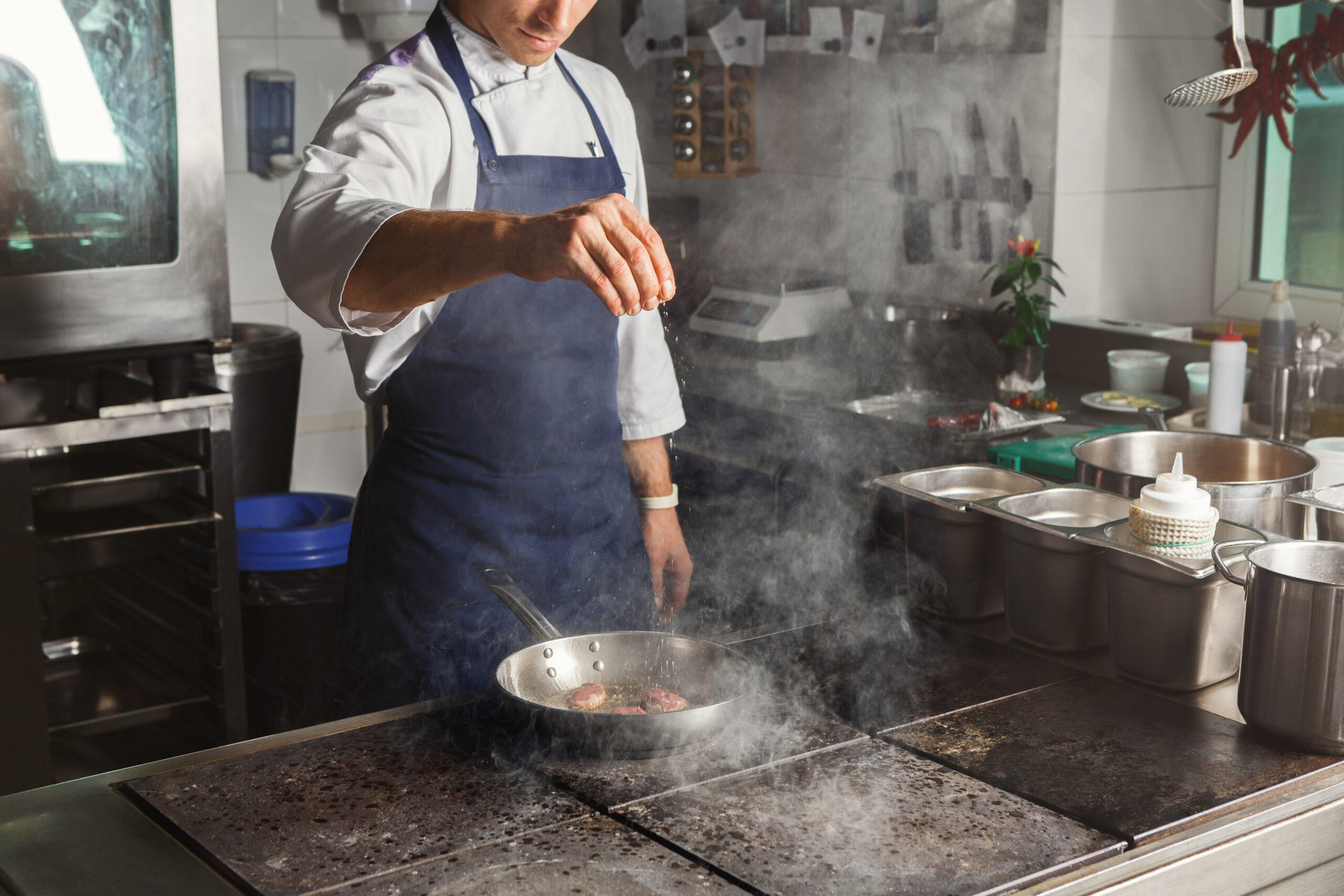Essential Skills for a Career in Hospitality (Examples and Tips)
Hospitality skills are crucial for ensuring comfort and delivering top-notch customer service. Success in the hospitality sector hinges on a robust array of soft skills and the capacity to acquire any job-specific technical skills. These skills are beneficial in direct guest service roles in fostering a positive organisational culture and establishing professional relationships.
This guide will discuss the nature of hospitality skills, methods to enhance them, and strategies to showcase them when seeking employment.
Defining Hospitality Skills
Hospitality skills encompass a range of behaviours, tools, and knowledge that empower professionals in the service industry to create a positive dynamic between guests and their hosting establishments. These skills involve effective communication, organisation, and a focus on meeting guests’ needs. They are vital in roles like front desk, guest services, restaurants, spas, hotels, and other guest-oriented environments.
Examples of Hospitality Skills
To excel in hospitality, developing various skills that enhance communication and organisation and create a welcoming environment is important. You may need to employ several of these skills simultaneously to handle complex situations. Key skills to develop for advancing in hospitality include:

Attention to Detail
This skill involves noticing and addressing the finer aspects of a guest’s overall experience. High-end service providers stand out by anticipating and catering to these small yet significant details.
Consider the difference between broad thinkers who inspire with big ideas and detail-oriented individuals who focus on the minutiae. Whether it’s identifying a small error in a code, planning intricate travel itineraries, or meticulously editing a document, attention to detail can be crucial. Avoiding distractions and multitasking is important for maintaining productivity. Additionally, being organised is vital. This might involve keeping an updated, consolidated calendar for personal and professional commitments and adopting a systematic approach to tasks and note-taking. Daily routines for reviewing schedules and task lists can also enhance attention to detail.
Effective communication, both confident and humble, is necessary to display this skill in a workplace setting. This includes active listening and the ability to summarise conversations accurately, ensuring clarity and mutual understanding in professional interactions. You can significantly improve your work efficiency and job satisfaction by honing these aspects.
Patience
Patience is a vital skill in any role involving customer service or hospitality. Hospitality professionals must be committed to resolving issues, even in the face of ongoing challenges or negative feedback from guests. Coordinating guest requirements and solving problems often requires considerable time, making patience and endurance key to preventing burnout.
Professionalism
Demonstrating professionalism involves acknowledging and respecting guests’ boundaries, a skill that improves over time. Simple acts, like appropriate dress and tone of voice, can significantly influence your level of professionalism.
Multitasking
Managing multiple guests simultaneously while ensuring each feels like a priority is essential in hospitality. Effective multitasking enables you to make every guest feel valued while achieving your objectives. Those adept at multitasking can handle interruptions and reorganise their priorities swiftly to address urgent matters without disrupting their workflow.
Positivity
A consistently upbeat demeanour is highly sought after in hospitality roles. Guests anticipate friendly treatment at all times, and maintaining a positive attitude can positively influence your team’s behaviour.
Empathy
Employing empathy and compassion to understand guests’ feelings is crucial for identifying and addressing their underlying issues effectively. Recognising each person’s unique personality and perspective through empathy allows tailoring services to meet their specific preferences.
Problem-solving
Problem-solving lies at the heart of hospitality work, identifying guests’ issues, devising solutions, and ensuring follow-up for their satisfaction.
Flexibility
Adapting to unexpected or last-minute changes is essential in hospitality roles. Strong flexibility skills involve adaptability, prioritising effectively, and communicating efficiently as you transition between tasks.
Teamwork
Teamwork is key in collaborating with colleagues to provide guests a positive experience throughout their stay. Efficient teamwork enables you to achieve more collectively than individually, ensuring guests receive continuous care and attention.

Enhancing Hospitality Skills: Strategies and Practices
Anyone can develop their hospitality skills through dedicated practice, introspective reflection, and discipline, regardless of their natural inclination towards the hospitality industry. Here’s how you can excel in hospitality through various techniques:
Gather Customer Feedback
In hospitality, customer feedback is often collected through surveys or suggestion cards. Proactively seek this feedback from your manager, focusing on areas that apply to you. This will help you pinpoint improvement areas and reinforce what you’re doing right, enhancing your service quality.
Adopt a Customer-Centric Approach
Before engaging with a customer, try to empathise with their situation and consider their viewpoint. This approach is especially helpful when dealing with difficult customers, as it helps maintain composure and deliver exceptional service. Understanding a customer’s perspective aids in tailoring solutions to their specific problems.
Utilise Checklists
Due to the multifaceted nature of hospitality roles, checklists can be invaluable for organisations. Develop a general checklist for your daily tasks and revise it at the beginning of each shift. Regular adherence to this checklist will help ingrain essential activities, making them second nature over time.
Experience Different Roles
Enhance your hospitality skills by assisting in various departments. This exposure to diverse roles allows you to apply and refine your skills in different contexts by enhancing your overall competence in your primary role.
Implementing Hospitality Skills in the Workplace
The specific hospitality skills required vary depending on your role. For instance, hotel managers and housekeepers employ different skills in their service delivery. Regardless of your position, consider these best practices:
Communication with Colleagues
Effective hospitality service involves teamwork across various roles. Communicate regularly with your colleagues about expectations, task statuses, and daily plans. This ensures attention to detail and prevents oversight in hectic times.
Proactive Scheduling
Given the high volume of customer interactions in hospitality, anticipate potential requests and schedule accordingly. Allocating time for unforeseen tasks allows flexibility, ensuring you can address unexpected guest needs or assist colleagues when required.
Consistency and Reliability
Make realistic commitments and strive to meet expectations consistently. Recognise the reliance of guests on your service for a positive experience. Treat every guest with uniform respect and actively resolve issues directly within your responsibility or by guiding them to the appropriate assistance.
Maintain a Positive Attitude
A friendly and approachable demeanour is key in hospitality. Stay positive, even in challenging situations, to put guests at ease. This positivity fosters trust in your problem-solving abilities.
Punctuality
Timeliness is critical in hospitality roles. Guests appreciate prompt service, and tardiness can disrupt both their experience and your team’s workflow. Aim to arrive early for your duties to ensure you’re on time even if unforeseen circumstances arise. Promptness in service delivery also prevents guest irritation and fosters more pleasant interactions.

Mastering Body Language and Showcasing Hospitality Skills
Understanding Body Language
Grasping the subtleties of guest behaviour through their body language is a valuable skill. Observing and interpreting body language during interactions can help anticipate guest needs. For instance, a guest in the lobby looking around anxiously or fidgeting may require assistance but be unsure whom to ask. Proactively responding to such non-verbal cues can make guests feel valued and at ease.
Enhancing Your Hospitality Skills in Job Applications
The hospitality industry places a premium on service quality and presentation. Every aspect of the job application process is an opportunity to demonstrate your hospitality skills. To make your application stand out, consider the following:
In Your Resume
Your resume should reflect your capability to deliver outstanding customer service and thrive in dynamic environments. Detail your various responsibilities in the experience section to showcase your adaptability and multitasking abilities. Including quantifiable achievements, such as customer satisfaction scores or performance metrics, provides concrete evidence of your skills. Also, list any relevant hospitality certifications, like food and beverage handler licenses.
In Your Cover Letter
The cover letter allows you to delve deeper into your motivations for pursuing a career in hospitality. Illustrate your skills by describing specific instances where you excelled in hospitality, like resolving conflicts or managing complex schedules. Detail your actions, their impact, and how these experiences fuelled your passion for hospitality, thereby underscoring how your enthusiasm fosters skill development.
During a Job Interview
First impressions in a job interview are crucial, especially for front-facing hospitality roles that demand a professional and friendly presence. Choose a professional interview outfit in neutral tones, ensuring attention to details like colour coordination and wrinkle-free clothing. Arriving early demonstrates punctuality and reliability.
Throughout the interview, maintain a natural smile to convey a positive attitude. Control your body language to avoid fidgeting, showcasing composure and grace under pressure. Conclude by thanking the interviewer and following up with a thank-you note or email, showing initiative and a willingness to go the extra mile.


